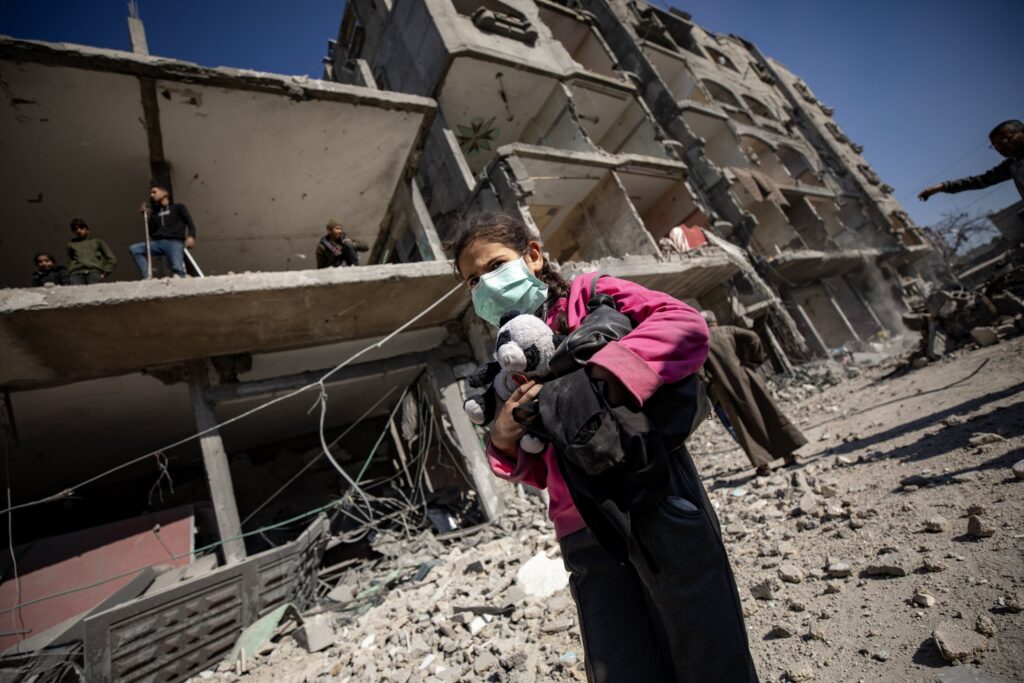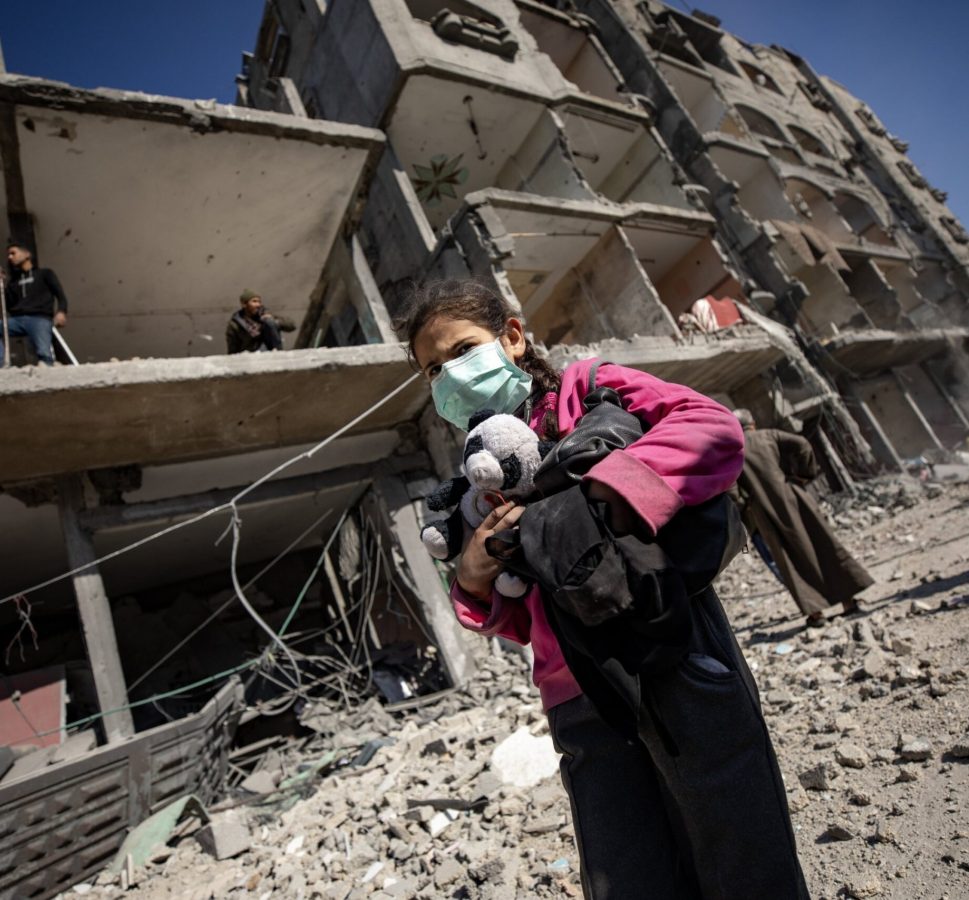
Nabila Hamada gave birth to twin boys in Gaza during the early stages of the conflict, in a hospital overwhelmed with the smell of death and crowded with displaced individuals.
When the hospital came under threat from Israeli forces, she and her husband escaped with just one of the infants, as medical personnel deemed the other too fragile to move.
Nabila Hamada, a mother who lost one of her new-born twins in the war said, “I never imagined that I would see these things, all that would happen to me when I went to give birth, that I would lose my child and not know where he is, I want my son, I want him back. “
Hundreds of thousands of Palestinians are grappling with their mental health following nine months of war, and she is one of them.
Sadly, Hamada never laid her eyes on that child again.
The anguish of losing one of her sons left the 40-year-old Hamada so terrified of losing the remaining twin that she became paralyzed and ill-prepared to cope with the daily struggle for survival.
Gaza’s largest hospital was subsequently targeted by Israeli forces.
Fouad Hammad, a mental health supervisor at UNRWA, mentioned that on a daily basis they come across 10 to 15 adults at shelters in Khan Younis who are dealing trauma. “Most of the cases that therapists encounter here in the centre are cases of children who suffer from fear and sleep problems, and adults who suffer from insomnia, tension, and extreme anger, as many people no longer have the ability to control themselves,” he said.
Kids are extremely susceptible, particularly since a lot of parents are struggling to cope.
There are limited resources available to assist Palestinians in dealing with their experiences.
According to mental health professionals, the chaos and high number of individuals suffering from trauma hinder their capacity to provide effective help.
They are providing a type of “psychological first aid” to help lessen the most severe symptoms.
Ulrike Julia Wendt, emergency child protection coordinator with the International Rescue Committee, stated, “There are approximately 1.2 million children who require mental health and psychosocial assistance. This essentially includes almost all of Gaza’s children.”
Wendt has been traveling to Gaza since the conflict started.
She emphasized that basic activities like playtime and art classes can have a positive impact: “The objective is to demonstrate to them that not only negative events are occurring.”
The suffering has been unending as individuals have faced the loss of loved ones in Israeli airstrikes while many have been injured or left disfigured.
Trauma is exacerbated by continuous displacement: approximately 1.9 million out of Gaza’s 2.3 million residents have been forced out of their homes.
Most are residing in overcrowded tent settlements, facing challenges in accessing basic necessities like food and water.
Jehad El Hams, who is currently seeking refuge close to Khan Younis in the south, shared that he suffered severe injuries, including the loss of his right eye and fingers on his right hand, after mistakenly handling what he believed to be a food can, stated that “I have shock. I wake up multiple times because of the shock and I don’t understand what is around me. My children have been affected.
He contacted one of the limited mental health programs in Gaza, which is operated by the United Nations agency for Palestinian refugees, UNRWA. “My daughter is suffering, she has been affected psychologically, and my sons have started urinating on themselves,” he concluded.
According to Wendt of the International Rescue Committee, the psychological consequences of war on children can have a significant impact on their long-term development.
She noted that children in Gaza are struggling with nightmares and bedwetting as a result of stress, noise, overcrowding, and ongoing instability.
As the shelling persists in Gaza, Women and children continue to pay the heaviest price.






